Can Dogs Eat Butter?
Hey, ever peeked into your pupper’s eyes while you lovingly spread butter onto your morning toast, and wondered if your fur pal could share a bit of that buttery delight? Butter isn’t poison for dogs – it won’t make your pooch keel over and ‘play dead’ for real. But is it a health hero or a sneaky villain when it comes to your dog’s diet? Let’s dig into this buttery mystery.
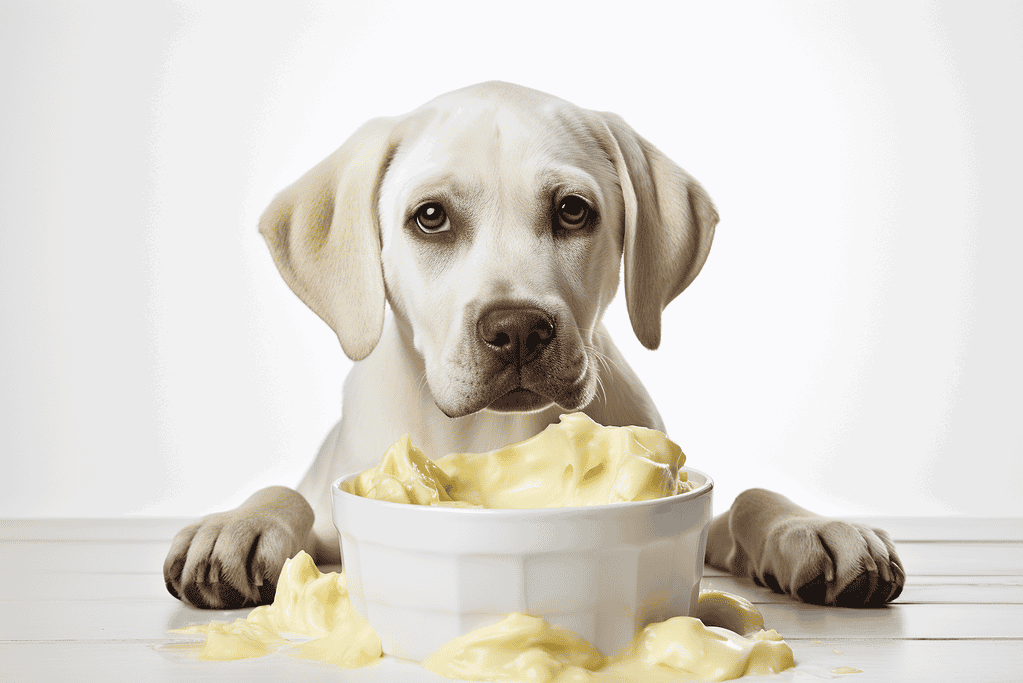
Here’s the thing. Some dogs can sneak a lick or two of butter from your plate and it’s no biggie. Maybe their tummies are made of steel, who knows? But for others, even a bit of butter can be a one-way ticket to a wild ride of upset stomachs and worse. Take it from me, pal, nobody wants that.
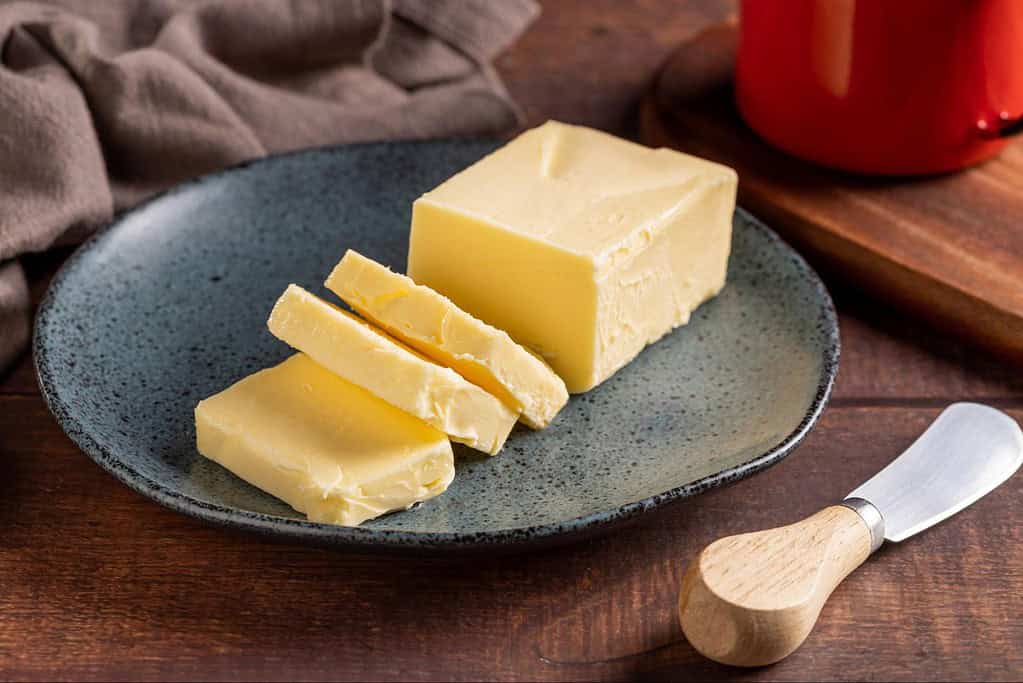
Here’s a handy tip – instead of butter, try giving your fur buddy a dose of Omega-3 and Omega-6 fatty acids. These are like the superheroes of the doggie diet world. Not only can they keep your dog’s skin and coat shiny and healthy, but they offer some serious health benefits too.
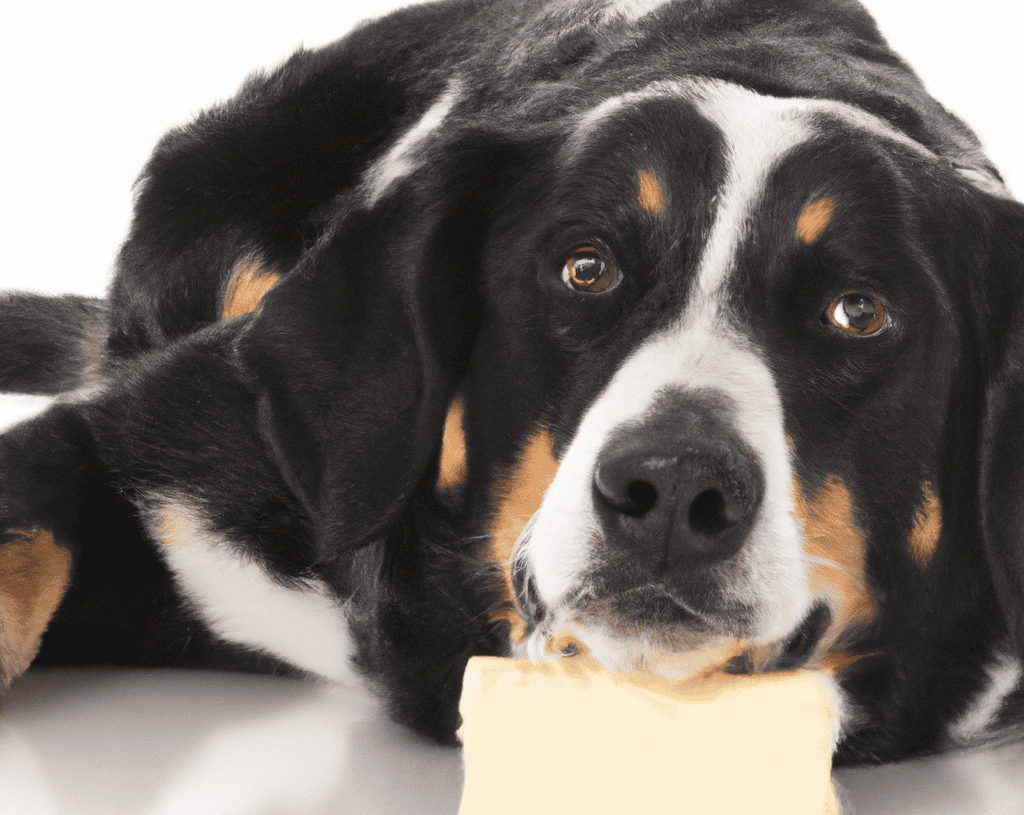
In short, butter isn’t exactly “dog’s worst enemy,” but it’s also far from being their best friend. Just like us, our fur friends need a balanced diet. No shame in treating them with human food, but always be informed and keep a check. After all, we want to keep their tails wagging for a long, long time!
Health Implications of Butter for Dogs
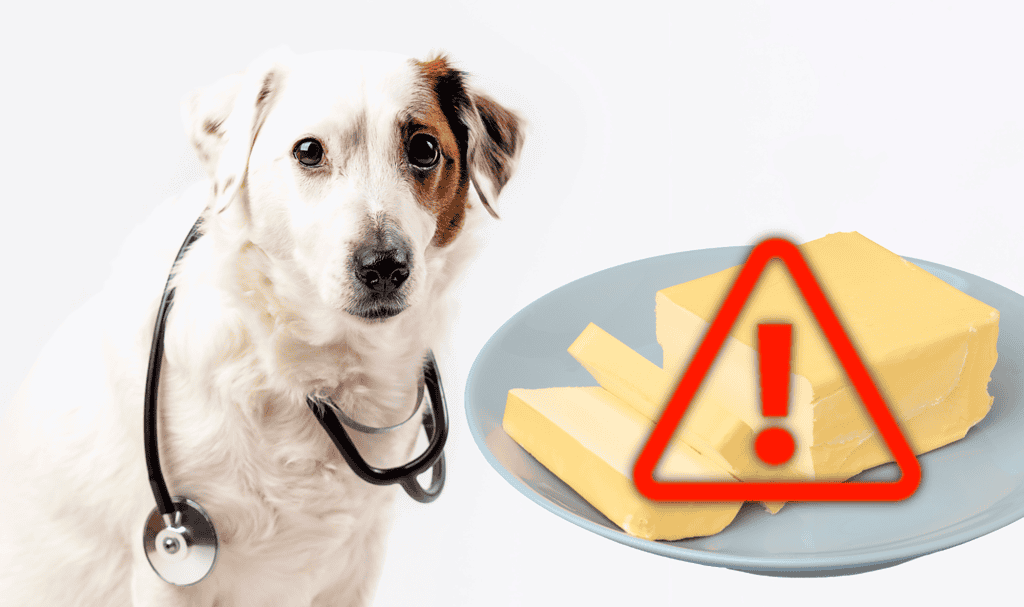
So your fur pal just stole a lick of butter off the kitchen counter. You’re now left wondering, is the butter gonna hit the fan or not? Well, let’s take a crunchy look at this slippery issue.
Weight and Obesity Issues
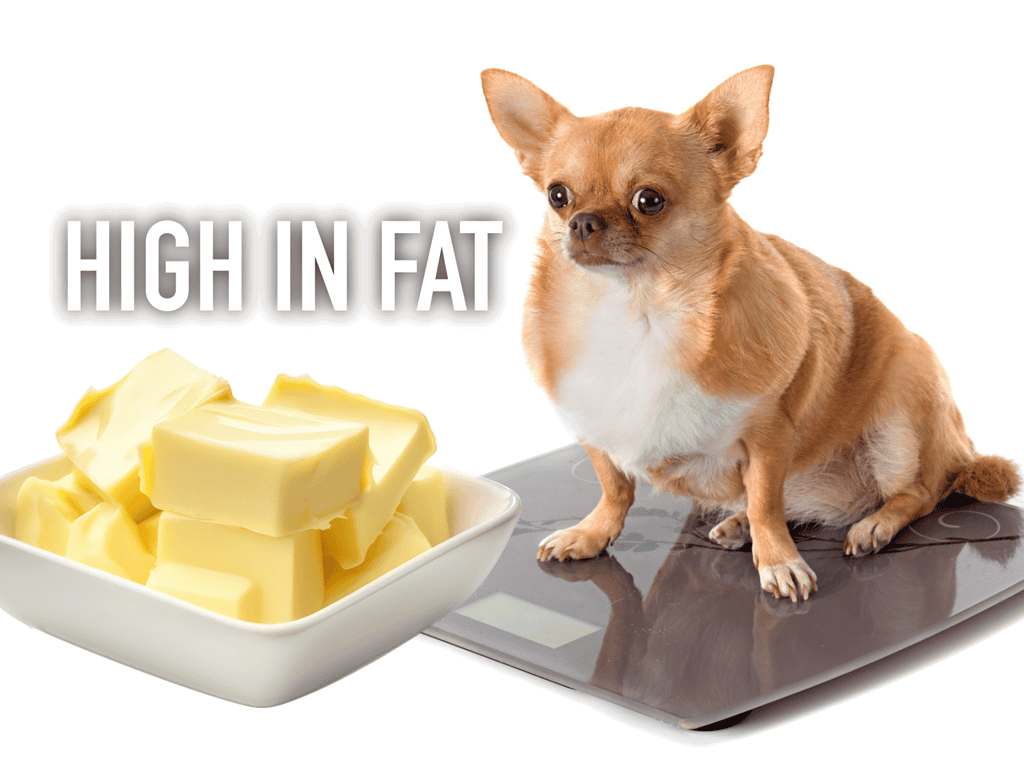
Butter is very high in fat and can contribute to obesity in dogs if consumed in large quantities. Just one tablespoon of butter has 12 grams of fat, while an adult dog weighing around 30 pounds only needs 14 grams of fat per day. Feeding dogs butter regularly can lead to weight gain, which may result in various health problems, such as lethargy and diabetes.
Digestive Problems
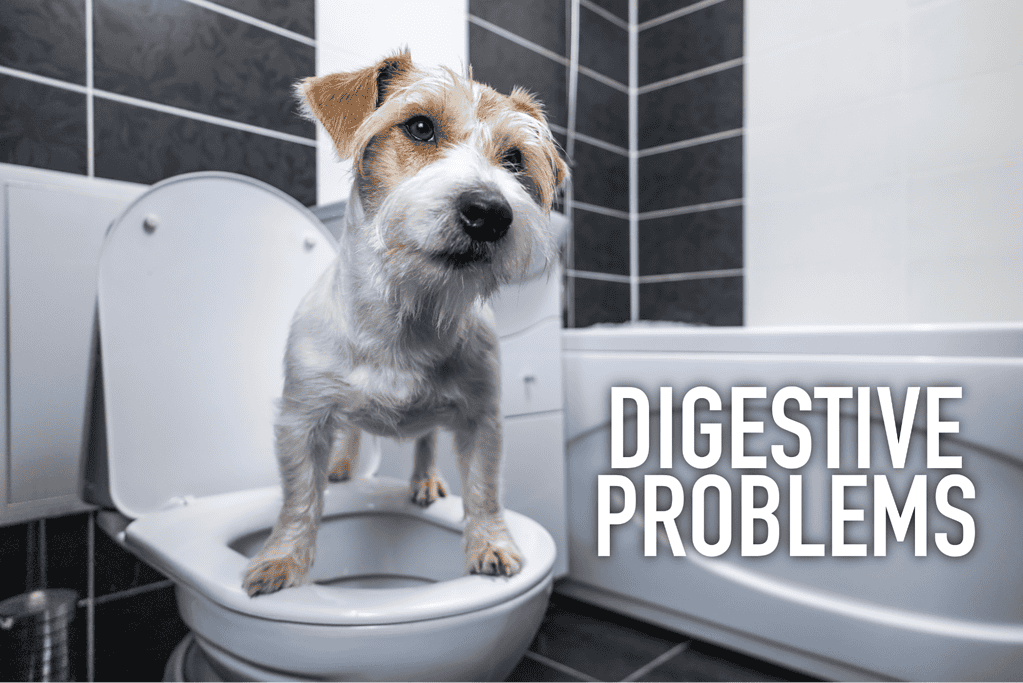
Let’s chat about lactose intolerance in dogs, which, no joke, can turn the aftermath of a butter binge into a smelly disaster. Yep, our doggy friends can struggle to digest lactose found in butter, which can result in some ‘ruff’ symptoms like gas, bloating, constipation, or diarrhea. Not to mention irregular bowel movements and abdominal discomfort? No fun for anyone involved.
Possible Toxicity
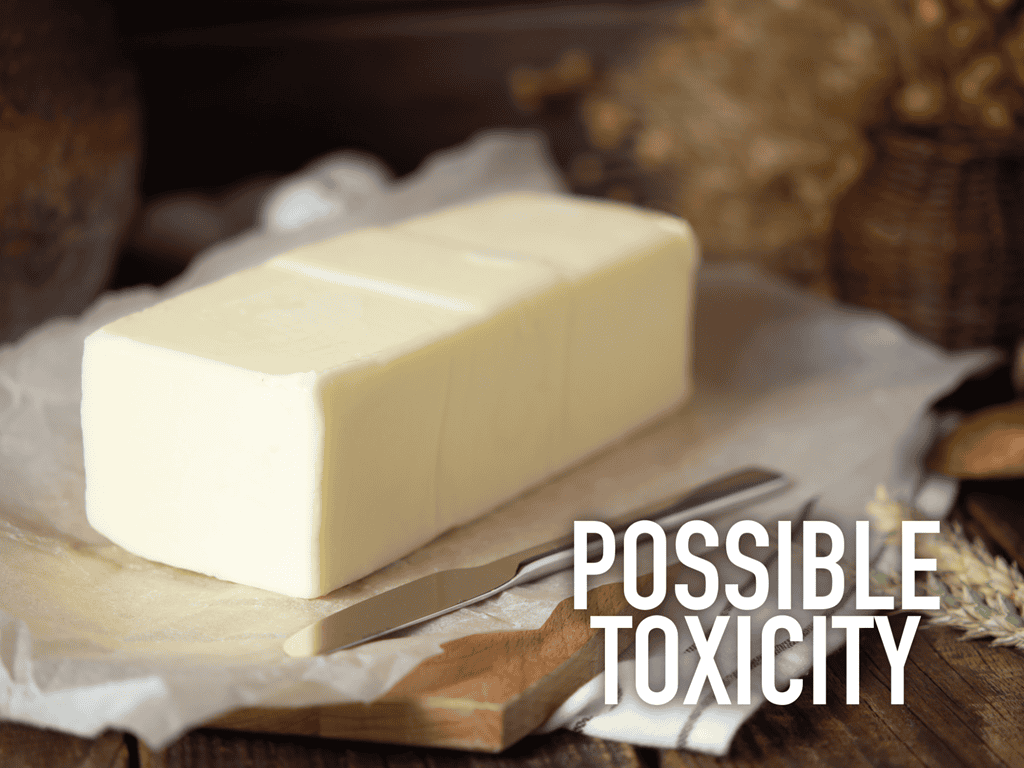
“Butter seems harmless,” you might think. And you’re right – usually – but sometimes it’s what’s inside that poses a threat. Some butters may contain hidden additives, flavors, or other sneaky things that are a big, fat ‘NO’ for dogs. So, when considering butter as a treat, scan that label and consult with your vet before giving butter to your dog, mainly if it contains ingredients not suitable for canine consumption.
Specific Health Conditions
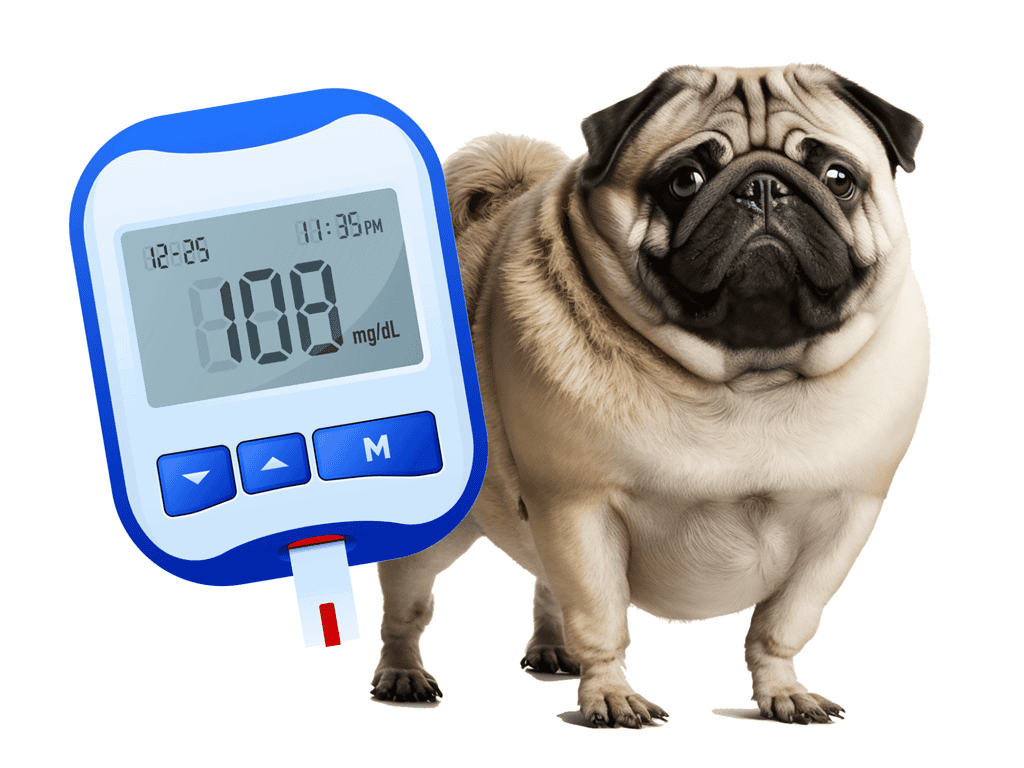
Got a fur pal with pancreatitis, high cholesterol, or diabetes? Slide that butter dish out of their reach. The high-fat party that butter brings to the table can make these conditions worse, and we’re all about keeping those tails wagging healthily. If your beloved pooch acts sick or lethargic after a butter tasting, get to your vet as quickly as you slipped on some butter!
Common Butter Alternatives for Dogs
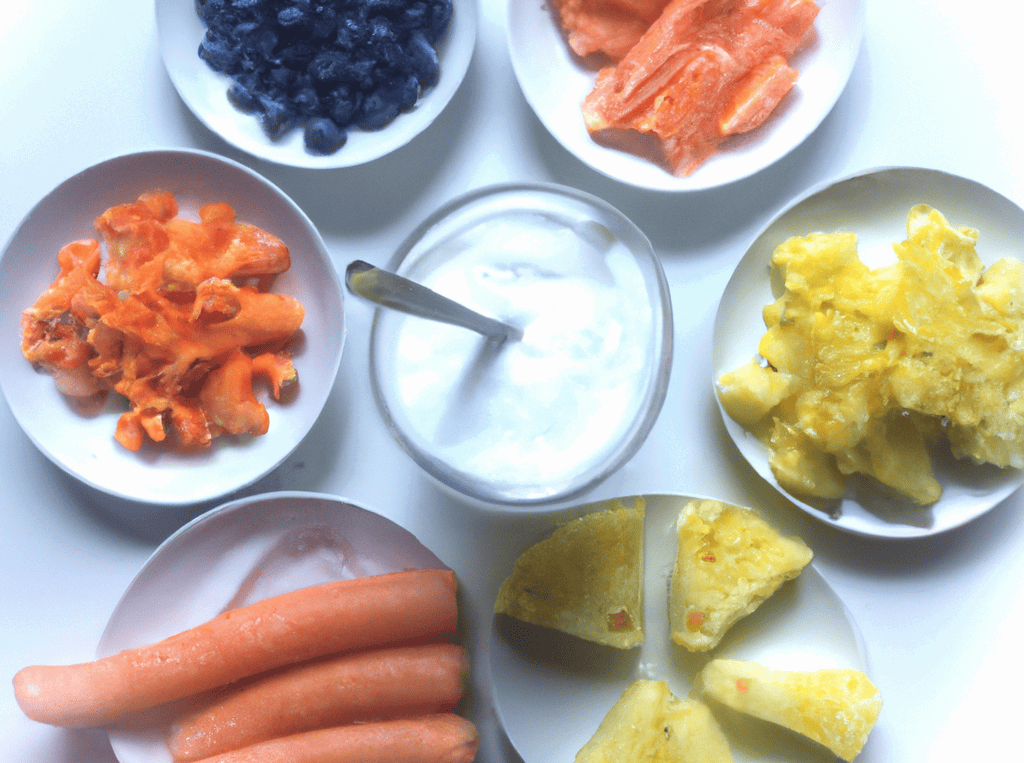
Oh the struggle, that butter in your hand versus those pleading ‘puppy eyes’ from your fur friend. But guess what, you have a ton of great alternatives for your pooch, so drop that butter guilt!
Vegetable and Fruit Options
First on the list are the veterans of good health – fruits and veggies! They aren’t just a gnawing delight for your fur buddies but also a vault of essential vitamins, minerals, and antioxidants.

We’re talking about the crunchy carrots that are a hit with the canines and a treat for their grisly chompers. Don’t overlook fiber; it’s a carrot’s best friend and your dog’s, too.

Then, slip in a blueberry or two. These little bursts of fruity sweetness are high in antioxidants that give your doggy’s immune system quite the boost.
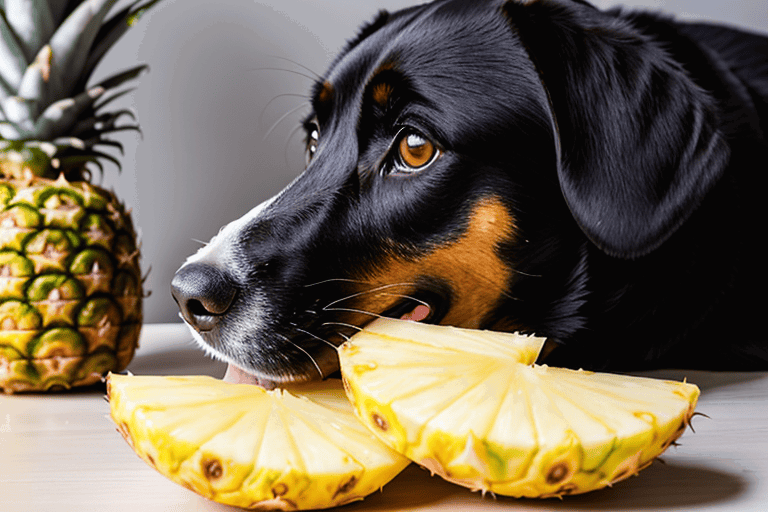
A piece of pineapple could be your pooch’s tropical escape. Besides being a sweet treat, these are great for digestion. Remember to take it slow, though. Too much pineapple could send your dog’s sugar levels on a rollercoaster ride.
Don’t forget, before you play the veggie-fruit Santa, ensure these are safe for your pooch – remove any seeds, cores, or not doggie-friendly parts!
Healthy Fat Sources
Don’t fall for the “all fats are villains” trap, guys! Your fur buddy’s menu could use a dose of good fats.

Hello, coconut oil – it isn’t just for those tropical beach massages. It’s a star in medium-chain fatty acids, and it’s all about making your fur friend’s immune system strong and healthy.
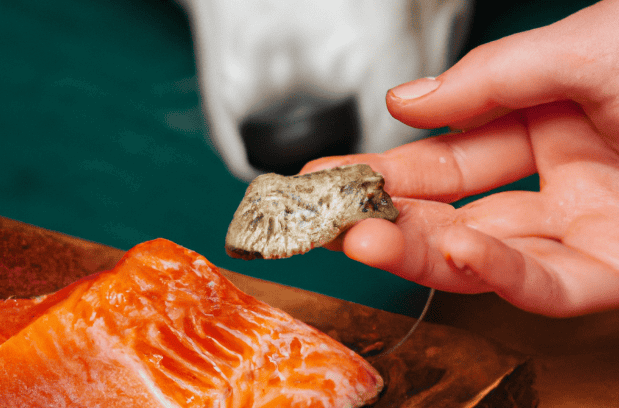
Feel free to invite salmon over to your dog’s dinner bowl. The Omega-3 fatty acids are like the superheroes of the canine diet world, helping with everything from joints to cognitive function and even keeping fur shiny.
Dairy Alternatives
You asked, “What about dairy?” and your prayers were answered. Say “Hello!” to some dog-friendly, lactose-light options:
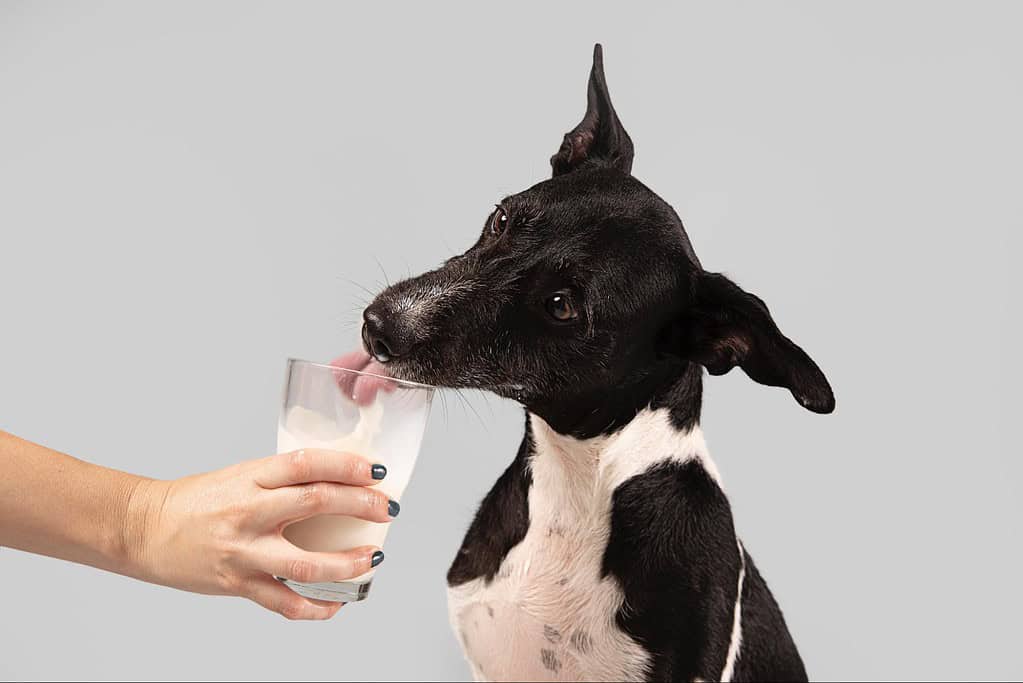
Lactose-free milk? Check! Now your fur pal can bask in the glory of calcium-rich goodness without the risk of digestive issues.
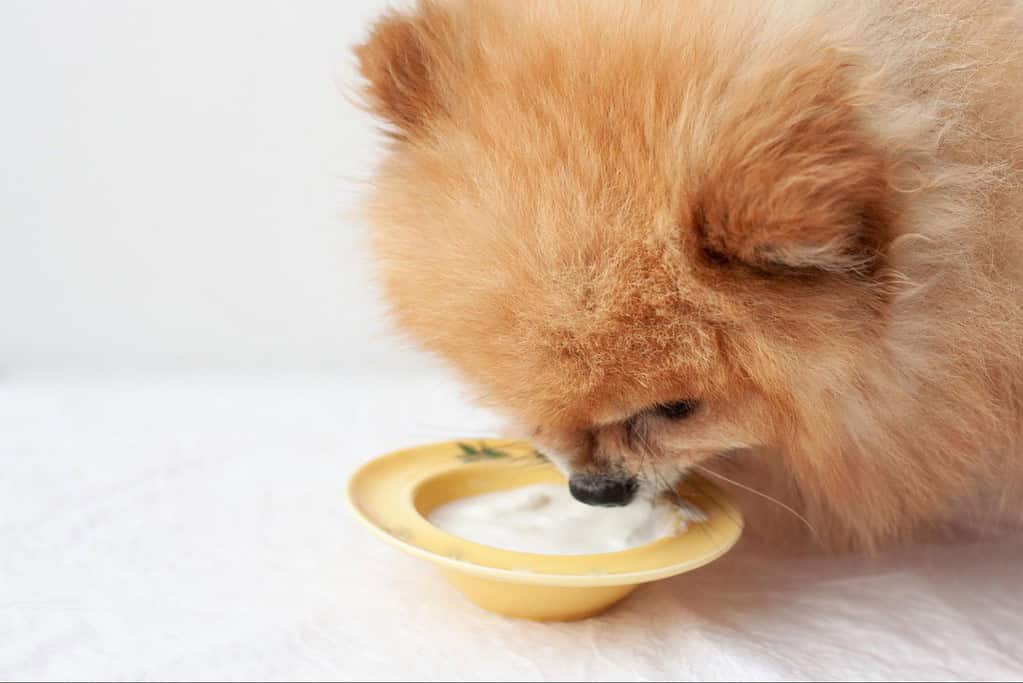
Try switching things up with plain, unsweetened, and lactose-free yogurt. It doesn’t just make a hearty treat but also takes care of digestion with its supply of probiotics.
Just remember, whenever you decide on giving the new dishes a twirl with your pup, maintain a close watch for any adverse reactions. And don’t be a stranger to your vet when looking for personalized advice for your furry mate. So, toss that butter worry away and unearth a new world of nutritious spoils for your fur folk!
Enjoying this read?
We publish this content for free to generate interest in our Premium members' area. By subscribing, you can ask the writer any questions related to pet care and this article, get access to 100+ Premium Pet Care Guides and go Ad-Free with DogFix Premium for $2.99.
Tips for Responsible Feeding

So, you’ve decided to share a smidgen of buttery goodness with your fur buddy but are wondering how much or how often, right? Well, then, let’s break it down.
Portion Sizes
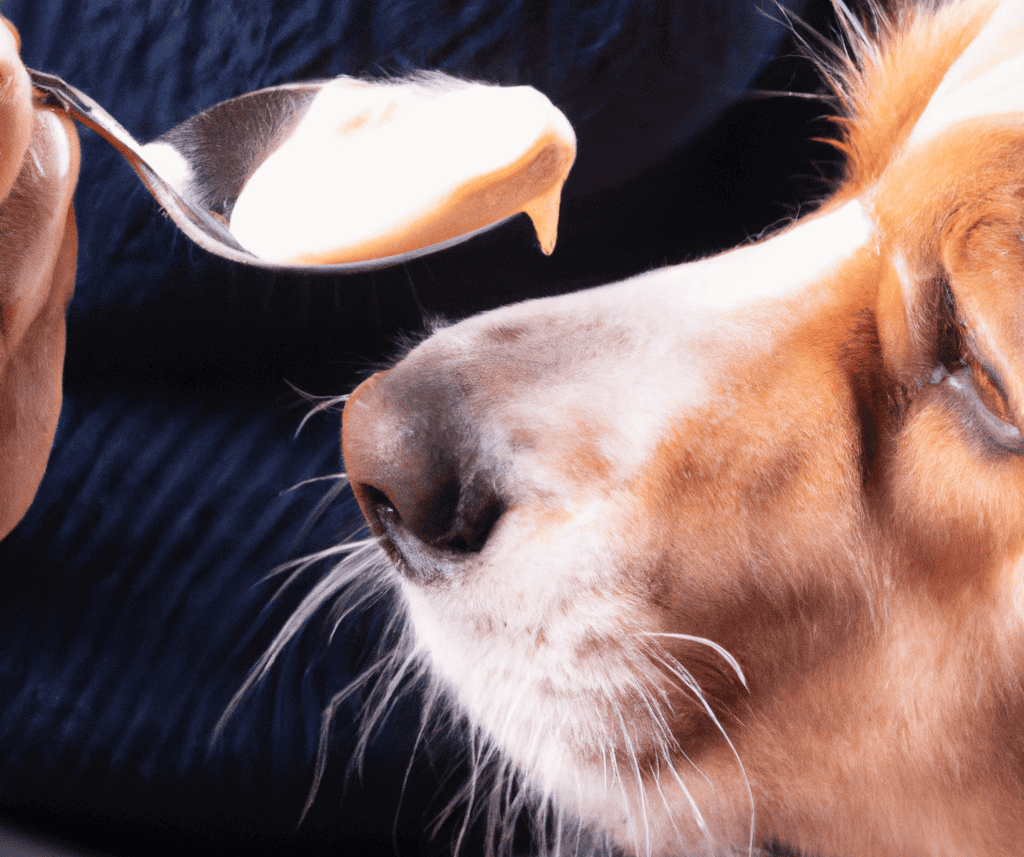
First up, portion size: important for humans, and definitely necessary for dogs! If butter is your pooch’s special treat, remember, being generous might win you cuddles, but it won’t do their health any favours. A tiny teaspoon size for small dogs and a tablespoon for your bigger buddies should do the trick.
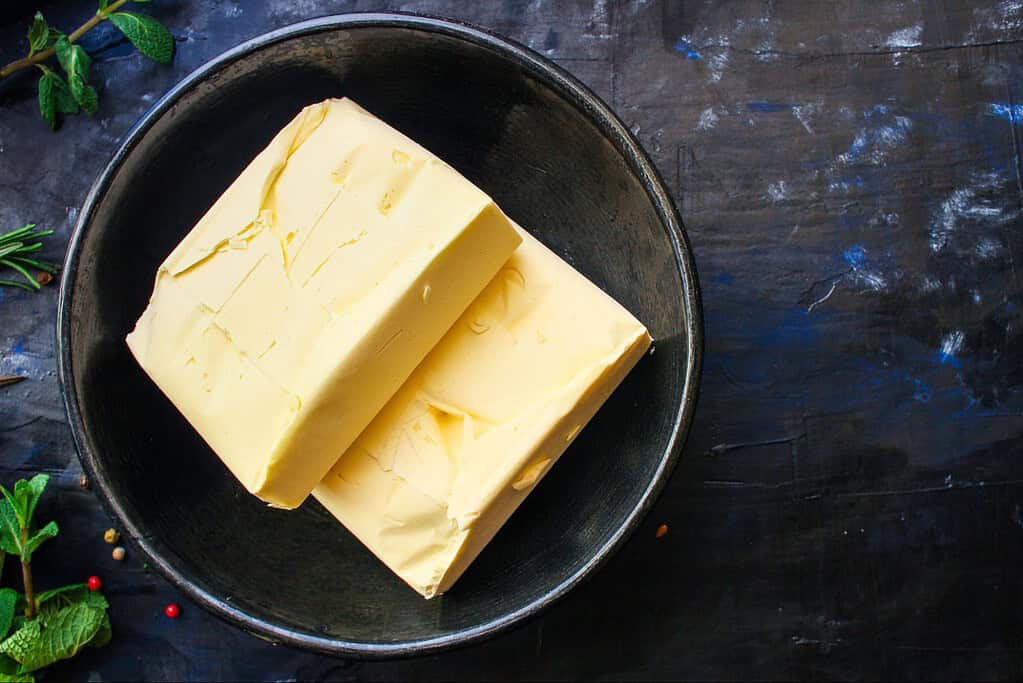
And before you ask, yes, butter is the bad boy on the block because of those pesky saturated fats. Too many of these and voila! You’ve got a chubby fur pal with health issues in the making. So, instead of butter, why not consider margarine? It usually packs lesser saturated and trans fats. But remember, like eyeing the last pizza slice at a party, go easy on this as some brands might spring a sodium and potassium surprise.
Feeding Frequency
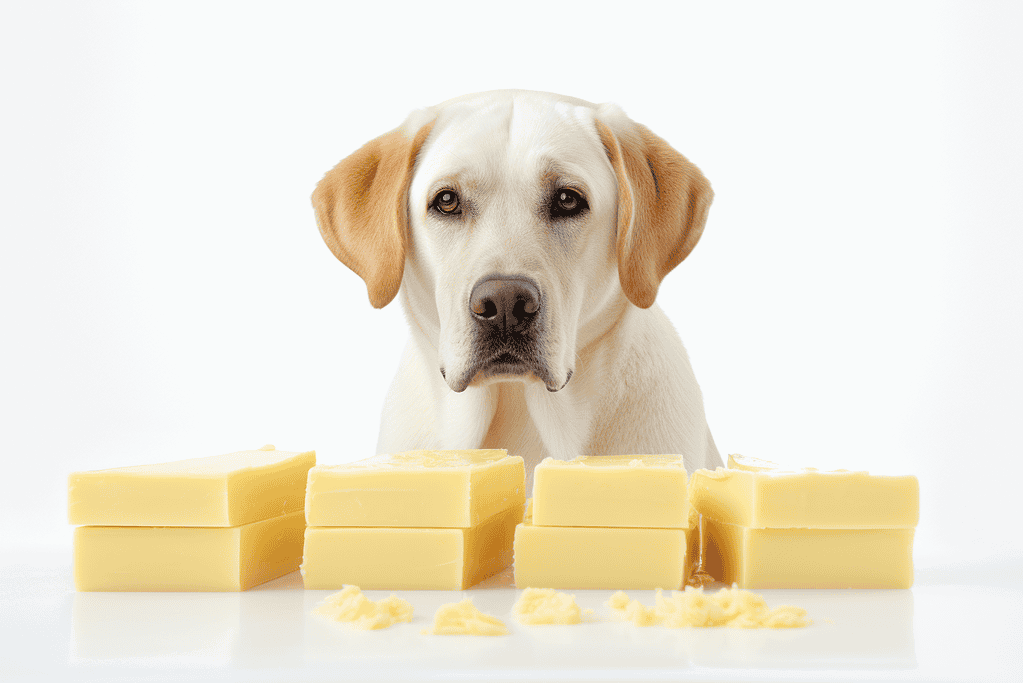
Next up, frequency. It’s about how often you let your doggo have butter. Everybody loves treats (heck, I do!), but it’s best to keep them occasional. Remember, too much butter and fatty food can lead to unhealthy food habits, weight gain, and more health issues, especially in already overweight furries. A balanced diet, filled mostly with dog-specific food, should be the usual fare on your doggie’s plate.
When to Consult a Veterinarian
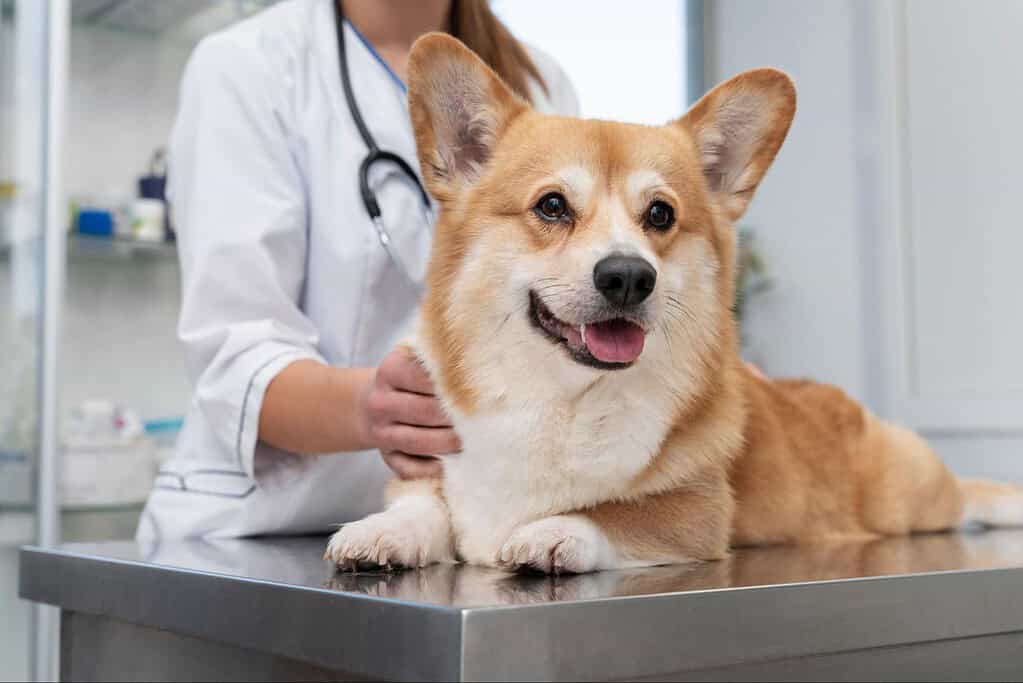
“Oops! My pooch just devoured a tub of butter!” Been there? Then it’s time to ring up your vet! While small amounts of butter might not spell disaster, a butter buffet can lead to all kinds of stomach upsets and health nightmares. Just like you’d check with a pediatrician before introducing new food to your baby, always consult your vet before going fancy with your dog’s meals. They’d offer tailored advice for your fur buddy’s specific needs, size, and dietary restrictions.
So, take it from me, sharing buttery love with your fur folk? Sprinkle it with caution, health always comes first!
Frequently Asked Questions
Is Butter a Dog-Friendly Delight?
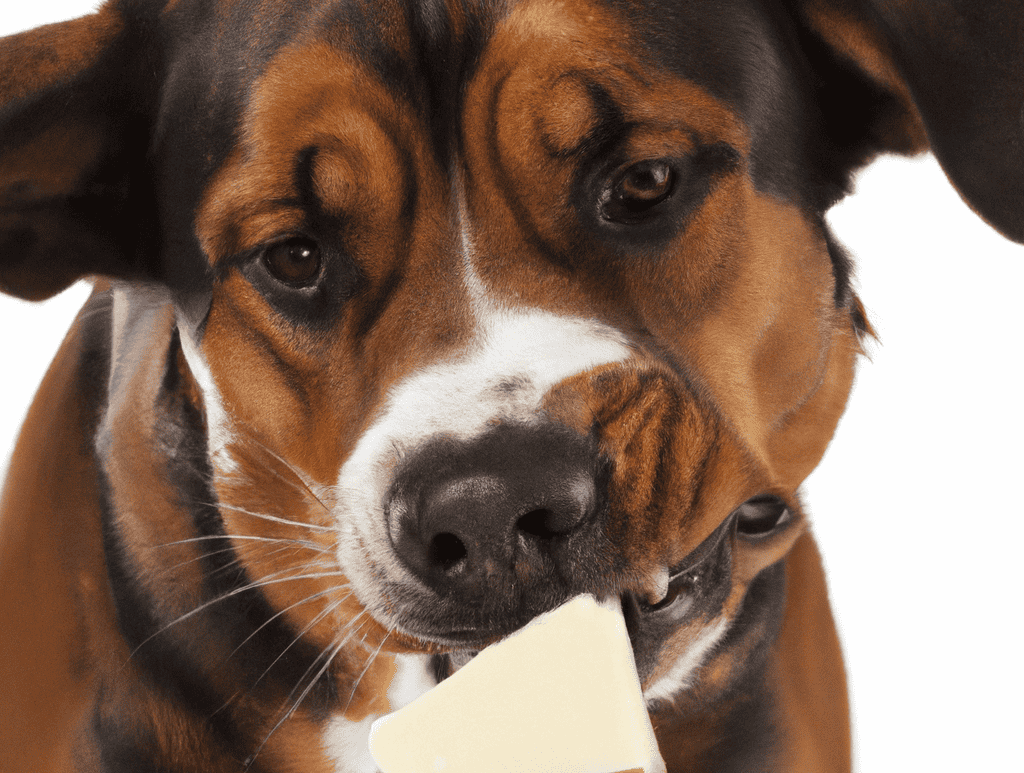
Straight answer: sadly, no. Despite not being toxic, butter isn’t exactly your fur pal’s bestie. Its high-fat content, Primarily saturated fat, isn’t doing any health favors for your buddy. To avoid any doggie discomfort or, worse, health issues, it’s best to keep that butter dish out of paw’s reach.
What Does Butter Do To My Dog’s Health?
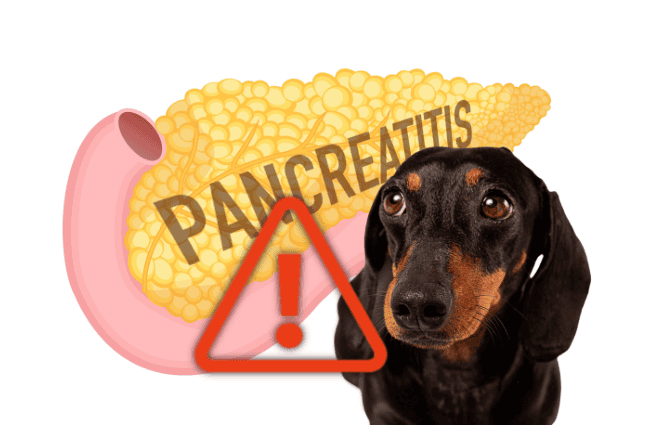
Too much of butter can lead to pancreatitis (nasty inflammation of the pancreas!), obesity, and issues with brain insulin transport.
My Pooch Gobbled Some Butter, What Now?
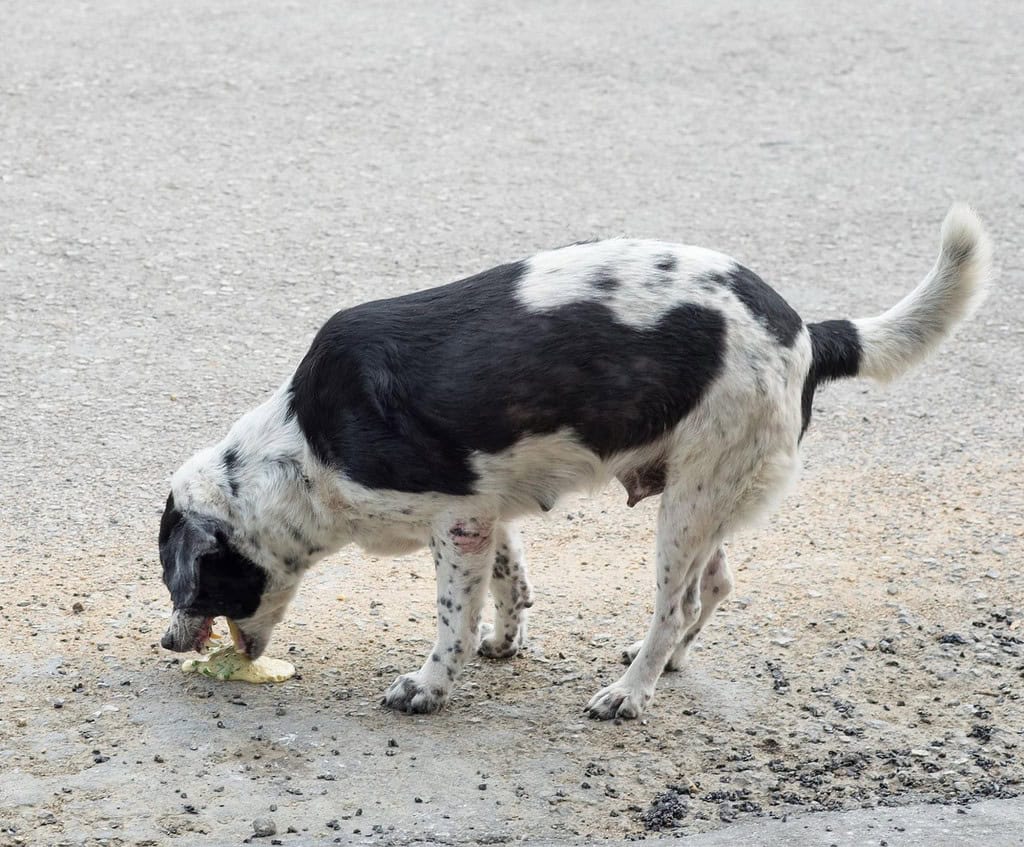
Well, if it was just a little lick or two, your dog will probably be fine. However, if your fur buddy had a Jerry-moments-with-all-the-cheese episode with butter, it’s vet time! Especially if your dog has symptoms like throwing up, diarrhea, or sudden laziness, whip out that phone and call your vet!
Butter Alternatives for my Pooch, Please?
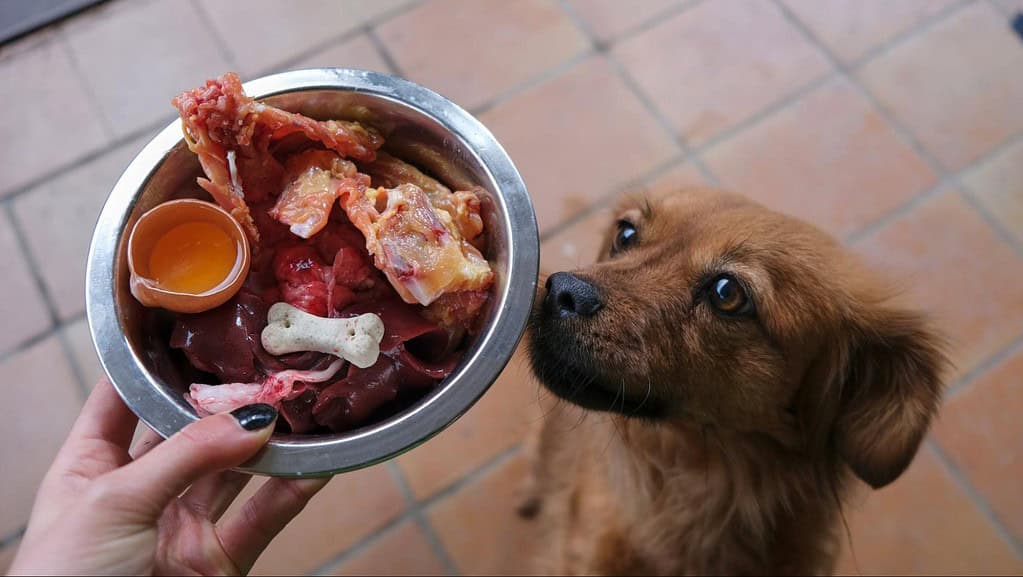
Trade butter for healthier fats found in lean meats, fish, or even coconut oil. They add a nutritious and yummy twist to your pooch’s diet, minus the health-risk baggage that comes with butter.
How About Stuff With a Little Butter on it, like Toast?
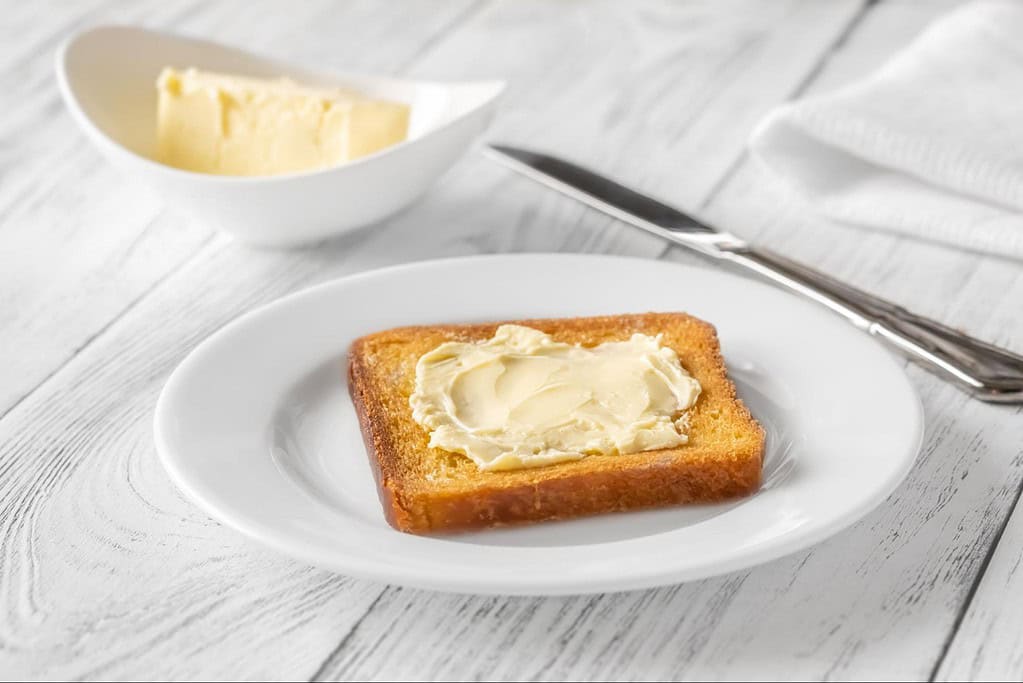
As tempting as it might be to share that last piece of buttered toast staring at you from the plate, resist! Even traces of butter aren’t ideal because of its high-fat content. Go for plain toast or, better still, dog-friendly snack options.
Eating Butter: What’s at Stake for My Dog?

Fats aren’t bad, but high-fat foods like butter? Not so good for our furballs. Risks range from the dreaded pancreatitis to obesity, and even an upsetting decrease in brain insulin transport. Besides creating long-term health stress, it isn’t exactly a pathway for a vibrant lifespan for your pooch.
Things To Remember About Dogs And Butter

- Butter is not toxic to dogs but may cause health issues due to high-fat content
- Healthier alternatives like omega-3 and omega-6 fatty acids can improve your dog’s skin and coat health
- Always monitor your dog’s diet and choose human foods wisely to avoid potential risks.
